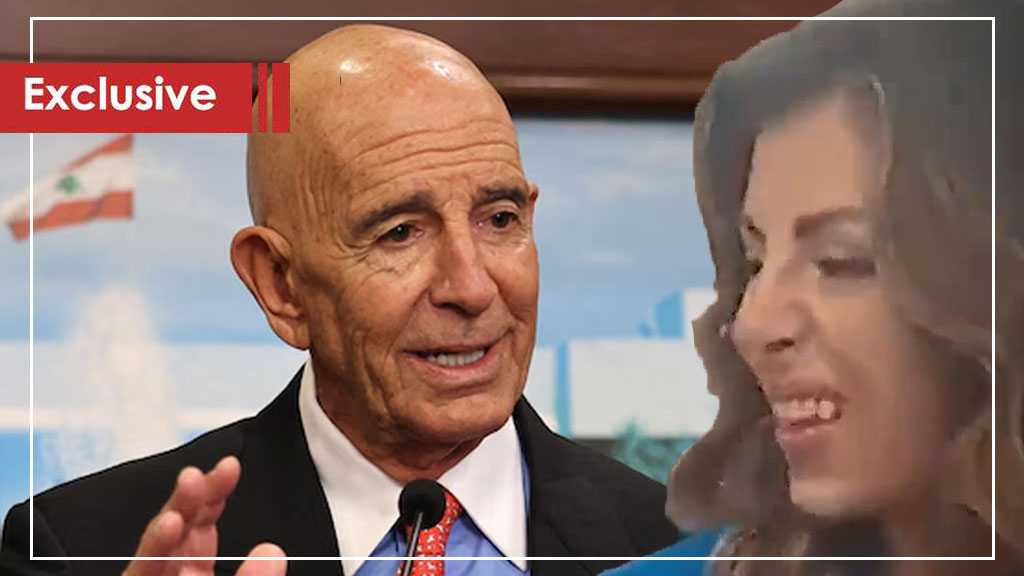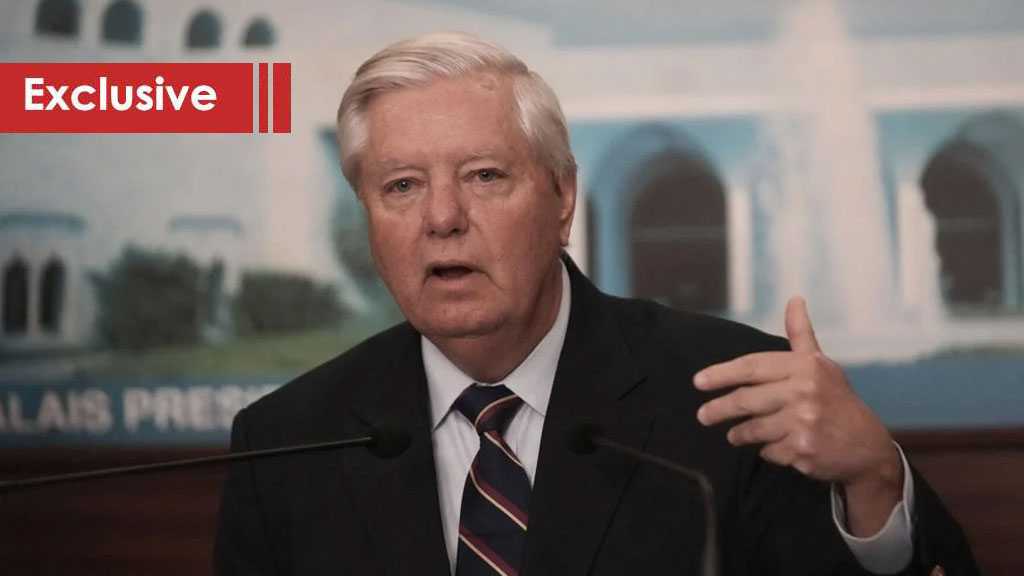“Animalistic”: The Slur That Revealed American Arrogance in Lebanon

By Fatima Haydar
Lebanon – On Tuesday, at Baabda Palace, US envoy Tom Barrack stood before Lebanese reporters and, with the arrogance that has long characterized Washington’s dealings with our country, told them to act “civilized” and not be “animalistic”. Those words were not just a slap in the face to Lebanon’s press corps, but to Lebanon itself – a country Washington never ceases to lecture about sovereignty while trampling on its dignity.
How dare an American official, standing on Lebanese soil, speak of our journalists and our people in such degrading terms? His words revealed, once again, the mask slipping off the so-called diplomacy of the United States. They don't see Lebanon as a sovereign nation but as a mere playground where they can dictate terms, belittle its institutions and advance their own agenda with impunity.
This is why every American envoy — whether it’s Tom Barrack during his last Beirut visit or his predecessors over the decades — inevitably circles back to the same demand: the disarmament of Hezbollah. At the core of that agenda lies the old, tired yet persistent demand: stripping Hezbollah of its arms. In their eyes, the only acceptable Lebanon is a Lebanon rendered defenseless; a Lebanon open to “Israel’s” warplanes and incursions; a Lebanon where the people are humiliated and oppressed, with no means to fight back.
The so-called “Barrack Paper” for Lebanon makes this strategy clear. Behind flowery language about reform, governance and economic recovery lies the central demand: weaken, contain and ultimately dismantle the Resistance. Every promise of aid, every whispered guarantee of international support, is tied to that single demand. And why? Because the United States is not a neutral broker; it is, and has always been, a full partner of “Israel”. Its envoys do not come as mediators but as envoys of occupation by proxy.
Disarm Hezbollah, they say, and Lebanon will prosper. But disarmament would not bring peace. It would invite disaster. Without the Resistance, Lebanon would be left at the mercy of “Israel’s” jets, its tanks, its endless appetite for war and expansion. History has already proven this truth: when our villages were bombed, it was not American envoys who stood in defense of our people – it was the Resistance. When occupation forces trampled our South, it was not American promises that liberated our land – it was Hezbollah.
The paper circulating in political circles, lays out Washington’s agenda with remarkable clarity. Beneath its diplomatic language, the American project in Lebanon rests on three pillars: integrating Lebanon into the Western economic order, normalizing relations with “Israel” and dismantling the Resistance that has kept our land free. The call for disarmament is the beating heart of this strategy. For the US, it is not enough that Hezbollah is a political party, a social force and a cultural presence; its weapons must go, because they are the only real guarantee that “Israel” will never again occupy our capital or dictate our fate.
The disdain does not end with Barrack’s insult. When Deputy Special Envoy to the Middle East Morgan Ortagus was asked about Hezbollah and about the speech of His Eminence Sheikh Naim Qassem, she sneered, called it “pathetic” and twisted her face into an expression of contempt. This too is telling. Washington cannot even tolerate the words of the Resistance, because those words remind them that Lebanon is not theirs to command.
They cannot stand that Sheikh Qassem speaks of sovereignty, dignity, confronting “Israel” and rejecting American tutelage. His words—calm, steady and principled—expose the emptiness of their narrative. No wonder Ortagus resorted to insults; she had no argument to offer. To them, such speech is “pathetic” because it defies their will.
Washington’s representatives all carry the same brief. Their mission is to break the backbone of Lebanon’s defense, to strip this nation of its one true deterrent against “Israeli” aggression and to deliver us naked into the hands of Tel Aviv.
But what is truly pathetic is a superpower that lectures small nations about democracy while arming apartheid “Israel” to the teeth. What is pathetic is Washington’s obsession with disarming the only Arab force that has ever defeated “Israel” on the battlefield. What is pathetic is a country that claims to defend press freedom, yet whose envoy calls Lebanese journalists “animalistic” when they dare ask uncomfortable questions.
What Barrack, Ortagus and Washington cannot stand is that Hezbollah represents something they cannot control: a Lebanese decision, rooted in dignity, sacrifice and independence.
Lebanon today stands at a crossroads, caught between two starkly different visions. One, imposed by Washington, demands our subservience to foreign diktats, insults our press and reduces our sovereignty to empty slogans. The other, embodied by the Resistance, insists on dignity, on true sovereignty defended by arms, and on the refusal to kneel before "Israel" or its American backers.
For those who still doubt, the choice is clear. We can either cling to the false promises of those who call us “animalistic” while plotting to strip us of our shield, or we can stand firm with the Resistance — the same Resistance that has never once abandoned Lebanon to its fate. For my part, I know where I stand.
The implications of this struggle are clear. Every insult from an American official, every demand for disarmament, every sneer at our leaders, is part of a larger war — a war of narratives, legitimacy and sovereignty. Lebanon’s choice is stark: accept the humiliation, normalize with “Israel” and surrender the arms of the Resistance, or stand firm and preserve our dignity, even at the cost of enduring pressure and threats.
From my perspective, the answer has already been given. The Resistance’s arms are not up for negotiation. They are Lebanon’s insurance policy, its shield and its dignity made tangible in steel and fire. Let Barrack insult us, let Ortagus sneer, let Washington threaten sanctions and isolation — none of this erases the fact that Hezbollah’s weapons are the only reason we still breathe free under the Lebanese sky.
In the end, what they call “animalistic” behavior is nothing more than the Lebanese spirit refusing to be tamed. And if defending our land, press, sovereignty and Resistance makes us animals in their eyes, then let us embrace the title proudly — for it is better to be a lion in defiance than a slave in chains.



